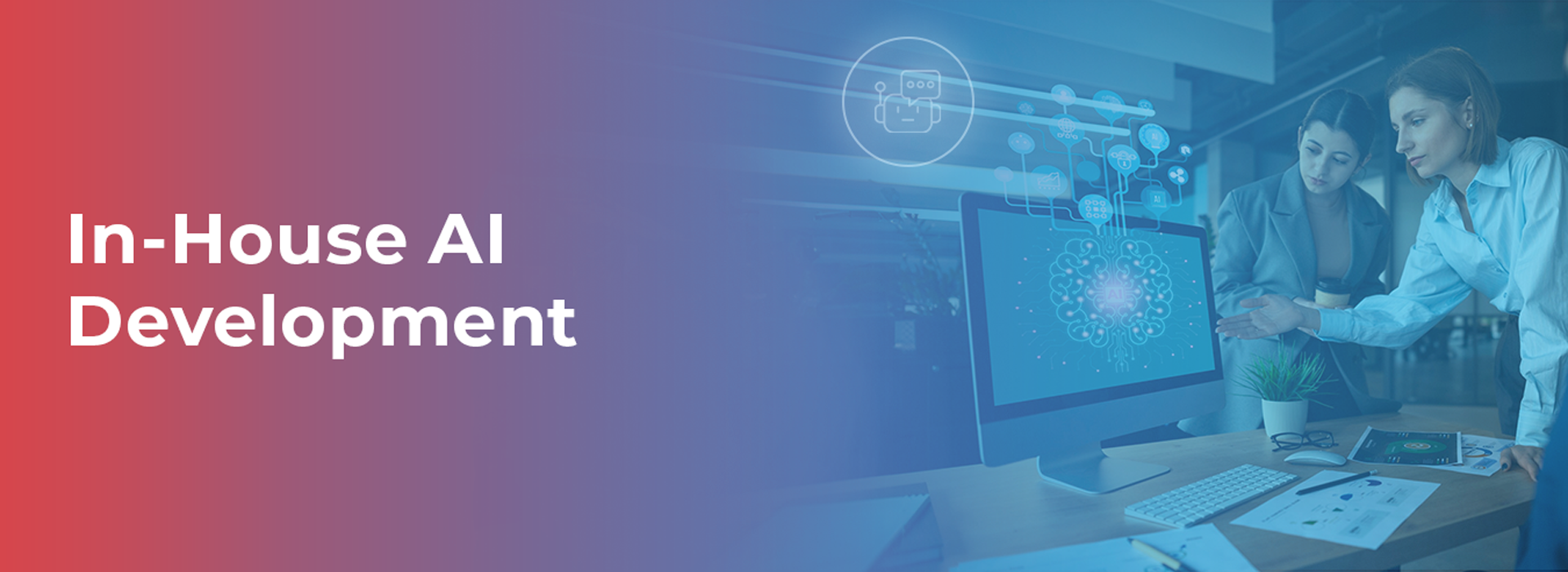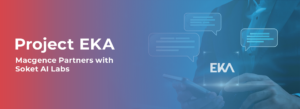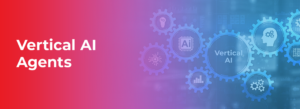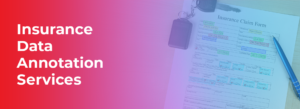Why In-House AI Development Is Better for Your Business
At this point, artificial intelligence is ingrained in technology, impacting industries such as healthcare and finance, as well as a multitude of other sectors. But there is a pivotal question that arises when businesses begin to understand the importance of implementing AI – should companies invest in developing AI solutions or purchase pre-built solutions externally?
In-house AI development, its importance, key challenges, best practices, and its benefits is what this blog aims to discuss. Whether you are a techno buff, an entrepreneur, or a developer, we will help you grasp the importance of AI infrastructure with actionable insights, well researched examples, and anticipated trends.
What is In-House AI Development?
In-house AI development is when a company utilizes its internal workforce to create AI models, tools, and solutions that are needed specifically by the business. This is different from off-the-shelf AI products as clients have full control over the development process, enabling full customization and optimization for intended business functions and goals.
For businesses such as Macgence that supply high grade data to enhance the AI/ML models, in-house AI development is a method that seamlessly integrates innovation and operational business problems and challenges.
Benefits of In-House AI Development
Opting for in-house AI can bring significant advantages to businesses willing to invest in the right resources. Here’s why it’s worth considering.
1. Customization for Specific Needs
Pre-packaged AI solutions are designed for broad applications. With in-house AI, developers have the opportunity to build systems tailored to the organization’s unique business problems, industry, or workflow. For instance, a startup in e-commerce can design an AI-powered recommendation system optimized for its particular product catalog and customer behavior.
2. Cost Savings in the Long Term
Indeed, there could be a great deal of up-front investment needed when developing AI in-house, but there would be significant cost benefits in the absence of multi-year subscription expenses tied to external AI tools. In the long run, businesses are likely to save substantially, particularly when the AI models are improved and expanded over time.
3. Enhanced Data Privacy and Security
Maintaining data security is often the number one issue when relying on third party AI services. When organizations build AI internally, they have complete control over sensitive and proprietary information to which proper and effective data security measures are attached as well as compliance with applicable privacy laws.
4. Flexibility and Ownership
Developing AI solutions in-house gives a business flexibility to iterate its models, adapt to evolving needs, and make improvements without waiting on external vendors. Ownership of the AI system prevents issues like vendor lock-in, providing freedom to innovate.
Challenges in Building AI Internally
While the benefits are substantial, in-house AI development comes with its set of challenges.
1. Talent Shortage
AI development requires skilled professionals such as data scientists, machine learning experts, and software engineers. Finding, hiring, and retaining this talent can prove difficult, even for large enterprises.
2. Resource Allocation
AI system development demands significant investment in computing power, tools, and infrastructure. For startups with limited budgets, allocating resources while managing other business needs can be complex.
3. Ethical Considerations
The ethical implementation of AI is paramount. Companies must ensure fairness, eliminate bias in data sets, and develop systems that adhere to laws and cultural norms.
Best Practices for Seamless Implementation
Want to get started with in-house AI development? Here are best practices to maximize success while overcoming known challenges.
1. Build a Diverse and Skilled Team
Create a team of experts with diverse technical and industry knowledge. Diversity within the team helps in mitigating biases and streamlining model development. Partnering with organizations like Macgence, which supplies quality training data, can help jump-start AI projects with reliable resources.
2. Leverage the Right Tools
Choose technology stacks and platforms that align with your goals. Popular frameworks like TensorFlow, PyTorch, or cloud-based tools can simplify the development process. Ensure that the tools chosen can handle scalability to meet future demands.
3. Start Small with Prototypes
Avoid going all in initially. Focus on building prototypes or Minimum Viable Products (MVPs) to test concepts. This will help refine models without expending significant resources upfront.
4. Monitor and Improve Regularly
AI implementation doesn’t end with deployment. Continuously monitor performance, gather feedback, and update models as needed. Businesses that view AI as a long-term investment are more likely to succeed.
Real-Life Success Stories
Netflix
Netflix’s in-house AI recommendation engine is a prime example of customized AI development that changed the game. Its tailored algorithm personalizes suggestions, keeping viewers engaged and minimizing churn rates.
Tesla
Tesla’s advancements in autonomous driving technology stem from its in-house AI efforts. By leveraging proprietary AI platforms, Tesla has built a system constantly improving through data collected from Tesla cars worldwide.
Future Trends in In-House AI

The landscape of in-house AI development is evolving rapidly. Here are some key trends that will shape the future of this space.
1. AI-Enhanced Automation
AI technologies integrated into workflow automation tools will redefine productivity. Expect startups to develop in-house AI solutions to automate repetitive processes with unmatched precision.
2. Explainable AI (XAI)
There will be a rising focus on explainable AI that will seek to solve ethical problems of the future which will enable organizations to rationally support the decisions that AI systems arrive at.
3. Emerging AI Hardware
AI-specialized chips such as Google’s Tensor Processing Units (TPUs) are cloud enabling in-house AI development by lowering the expense of large-scale computing management.
4. Focus on Natural Language Processing
With advancements in NLP models like ChatGPT and BERT, businesses will increasingly develop in-house AI that powers customer support, content creation, and more.
Why Your Business Should Build AI Capabilities
No more can AI be regarded as a novel term only; it is becoming an integral part of progress. Developing the AI products inside the organization creates proximity to customers, accelerates all processes, and guarantees market position. Even though there are problems, these can always be solved assuming a proper team, adequate data, and appropriate resources are available.
If you’re thinking of starting your AI development journey, consider partnering with Macgence. From premium-quality data sets to resources for training AI/ML models, Macgence can accelerate your progress and set you up for success.
Jump into the future of innovation—start building your in-house AI today!
FAQs
Ans: – Macgence provides reliable, high-quality data to help businesses train and optimize their AI/ML models. Their services are ideal for startups and enterprises alike.
Ans: – It depends on your organization’s goals. While in-house AI offers greater control and customization, third-party solutions might be quicker for businesses needing immediate deployment.
Ans: – Startups can begin with small projects or prototypes while leveraging external datasets from providers like Macgence instead of building everything from scratch.
You Might Like
February 28, 2025
Project EKA – Driving the Future of AI in India
Spread the loveArtificial Intelligence (AI) has long been heralded as the driving force behind global technological revolutions. But what happens when AI isn’t tailored to the needs of its diverse users? Project EKA is answering that question in India. This groundbreaking initiative aims to redefine the AI landscape, bridging the gap between India’s cultural, linguistic, […]
March 7, 2025
What is Data Annotation? And How Can It Help Build Better AI?
Spread the loveIntroduction In the world of digitalised artificial intelligence (AI) and machine learning (ML), data is the core base of innovation. However, raw data alone is not sufficient to train accurate AI models. That’s why data annotation comes forward to resolve this. It is a fundamental process that helps machines to understand and interpret […]
March 6, 2025
Vertical AI Agents: Redefining Business Efficiency and Innovation
Spread the loveThe pace of industry activity is being altered by the evolution of AI technology. Its most recent advancement represents yet another level in Vertical AI systems. This is a cross discipline form of AI strategy that aims to improve automation in decision making and task optimization by heuristically solving all encompassing problems within […]
March 5, 2025
Use of Insurance Data Annotation Services for AI/ML Models
Spread the loveThe integration of artificial intelligence (AI) and machine learning (ML) is rapidly transforming the insurance industry. In order to build reliable AI/ML models, however, thorough data annotation is necessary. Insurance data annotation is a key step in enabling automated systems to read complex insurance documents, identify fraud, and optimize claim processing. If you […]


 Previous Blog
Previous Blog







